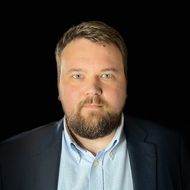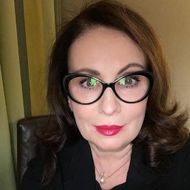Hybrid Formats and Psychological Education: Russian Education Trends 2023

The results of a study into the impact of global trends on Russian education show that future education will rely on hybrid formats, micro-credentials and dual learning. The study was conducted by the Laboratory for Educational Innovation Research of the HSE Institute of Education in cooperation with the Rosatom State Atomic Energy Corporation. This is the second study on this topic.
The researchers analysed the top ten new global trends in pedagogy to find out what innovations in education will come about in 2023 and how Russian and European innovators see the future of education. The Institute of Educational Technology of the Open University (UK), in collaboration with the Open University of Catalonia (Spain), prepared and published the ‘Innovative Pedagogy’ annual report on new trends in education.
Russian innovators, experts, university students and schoolchildren assessed the impact of the world's leading trends on domestic education. A total of 370 innovators from 60 Russian regions took part in the survey.

Diana Koroleva, Head of the Laboratory for Educational Innovation Research at HSE University and Director of the Innovations in Education Competition
‘Traditionally seen as a rather inflexible area, education today is quickly adapting to an environment of high uncertainty and never-ending change. In this context, the ability to notice emerging trends in time, correlate them with one’s goals and resources, and adapt the strategy respectively is of crucial importance. We have invited highly adaptable players, including leaders of education projects, innovators in education, and young stakeholders of the education process—school and university students—to assess the relevance of global trends for Russia.’
The trend towards hybrid learning was supported by 61.8% of Russian respondents. Experts note that it originated as a forced measure, and now it has become one of the most ‘hyped’ concepts.
As a result of the pandemic, the learning process has changed: teachers now more often use online tools along with traditional classroom lessons. Many teachers have mastered video calls and offer their courses in a hybrid format: some students connect online, while others take the same course in the classroom.
Experts warn that the hybrid format is impossible without training teachers and building tech infrastructure where it is absent (eg in villages). One needs to be able to manage the attention of students and build lessons in a new way.
A total of 46.1% of respondents support another trend: obtaining micro-credentials. Respondents from large cities emphasised the relevance of this area.
The interviewed experts predict that pedagogies of micro-credentials will grow both in Russia and globally due to the fact that today, employees have to keep acquiring new skills and knowledge.
In some professional fields, such as programming, law, and psychology, micro-credentials have long become standard practice. In other areas, micro-credentials programmes are paving the way for adults to enter a new profession or move to a new career level.

Pavel Travkin, Deputy Vice Rector at HSE University
'In my view, micro-credentials are more than just a one-off course. They should be part of a degree, a set of three or four courses that sort of fine-tunes what one learnt at university. People graduate from university at the age of 22 and will work until the age of 60—surely everything will change along the road, there will be global technological shifts, and the skills obtained at university will not be enough. Thus, it will be necessary to keep updating them, gaining new knowledge and even new professions; and micro-credentials fit perfectly into this logic.'
A total of 38.7% of respondents supported dual learning—in classrooms and industry workplaces—as a trend.
Young innovators more often agree that dual-learning scenarios are a relevant trend for Russia. However, experts point to the insufficient resources invested by universities, while school and university students would like workplace internships to be paid.
Employers tend to seek a combination of education and practical experience in employees, and this demand is likely to grow in the future in the context of rapid changes and new requirements from the side of business, notes Yulia Uzhakina, CEO, Rosatom Corporate Academy.
‘Employers take up a proactive role, creating opportunities to involve students in activities that will help them understand the profession as early as possible. We have nineteen flagship universities in Russia, and we have offered internship opportunities to schoolchildren studying in our industry classes. We are creating an ecosystem that includes outreach to schoolchildren, their parents and teachers, and students of colleges and universities to attract young people to STEM. Employers are ready to invest resources in this work like never before.'
As for other significant trends, innovators highlight influencer-led education, wellbeing education, and pedagogies of the home. At the same time, experts are sceptical towards some educational trends, such the possibility of learning while walking. Expert opinion regarding the trend of ‘watch parties’ (developing creative skills and critical thinking through co-viewing of video content) is also divided.
The researchers note that Russian innovators primarily highlighted trends at the junction of online and offline formats: hybrid learning, combining study and practice via digital technologies, and online micro-credentials for career development. For all these trends, the skills of self-study and building your own educational track from small steps is especially important. In this regard, the trend of ‘autonomous learning’ can be called a key one for 2023, they summarise.

Natalia Dorpeko, Executive Director of the Association ‘National Network of the Global Compact’
‘This is a relevant study, which acquires a special focus in the current international situation, when the number of joint educational programmes between Russian universities and international universities is reduced and the window of opportunities for student exchange on international degree programmes is narrowing. This situation is deconstructive in every sense. Education should maintain an integrated international format in order to provide an appropriate level of knowledge and competencies to future specialists.’
The results of the 2022 study can be found here (in Russian).

